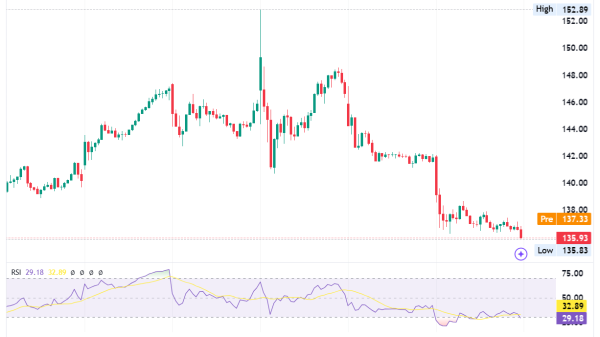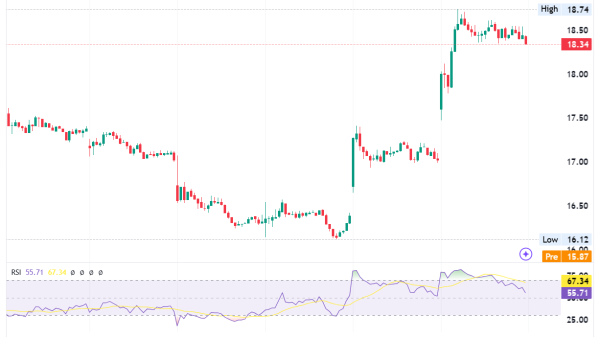Difference between investment and speculation
Navigating the world of financial assets requires a clear understanding of the difference between investment and speculation.
Investment decisions, rooted in fundamental analysis, often focus on the long term. They involve mutual funds, stocks, bonds, or even real estate.
On the other hand, speculation targets the short term, lured by potential high returns. Speculators might engage in short selling or hope a stock price hits a specific price.
This approach often brings high risk, especially without guidance from entities like the Securities and Exchange Commission. Both strategies aim to generate income.
Yet, knowing when to buy or sell is crucial, especially with the varying amount of risk and time horizon. So, what sets an investment apart from a financial transaction rooted in speculation? Let’s dive in.
What is the difference between investment and speculation?
At first glance, there would not be a big difference between investment and speculation since financial market participants have a common objective: to maximize their profits. And yet, these are two very different concepts.
Investors adopt a methodical strategy to increase their wealth, purchasing assets with moderate risk for sustained growth.
Conversely, speculators invest in assets with the potential for swift expansion, but these assets can also plummet to zero value if they become unpopular.
Investing vs speculation – what is an investor?
The investor is a medium and long-term player. The performance of an investment cannot be summed up by the profit made over a few days.
Investing consists of diversifying your investments by not putting all your eggs in one basket in order to benefit from the performance of your savings.
This involves avoiding two pitfalls: preventing the saved capital from eroding over time and avoiding the loss of savings that would be invested too concentrated in one type of investment or value. The investor invests regularly, ideally every month.
The speculator is looking for profit in the very short term. He bets on making the maximum profits quickly and with very high risk-taking.
What is an investment?
A financial investment is an economic subject’s activity to obtain a profit. This profit does not necessarily have to be monetary, such as a capital gain due to the sale of financial assets, but also patrimonial, that is to say, in the acquisition of new assets likely to produce future value.
There are short and long term investments. However, when we talk about financial investments, we often refer to the long term. In fact, in the short term, we often talk about speculation, which we will see in the next paragraph.
The investment can also be solely intended to protect capital without needing large profits. An example is deposit accounts, which offer a low but fairly guaranteed annual return. Therefore, the investor’s objective is to invest money to obtain more money.
To invest, it is therefore necessary to have initial capital. If, at the end of the investment, the final capital is greater than the initial capital, we can say that the investment is successful.
Why does the term “investment” have a notoriously positive connotation? Because investors have a longer time horizon for their investments and prefer low risk. Unlike the speculator, which we will see soon. If you want to try making financial investments, you can try the demo accounts offered by the many stock brokers.
This is free software and allows you to have a virtual amount of several tens of thousands of euros that you can use without financial risk because everything is virtual!
What is speculation?
Speculation has the same objective as investment but in a very short time frame. In fact, the speculator wants to make money in the short term, sometimes even in a few seconds if we use scalping.
The speculator also risks a lot and is not interested in a low return. The one who speculates wants a rather high return and is mainly interested in monetary gain.
In general, you have a negative view of the speculator because he only focuses on obtaining fresh money in a very short time. Basically, it adopts a more aggressive strategy in the financial markets.
The speculator carefully evaluates when to enter the market and when to exit. Determine in advance how much he is willing to lose (sometimes even the entire initial capital) and what his profit objective is.
Speculating on the stock market: what does it mean?
Do you want to start investing in the stock market with complete peace of mind? Discover our guide on everything there is to know about the online stock market. Brokers, investment types, fees and the best platforms!
What does it mean to speculate on the stock market today? To immediately clarify the concept, let’s take an example. We talk about stock market speculation when an investor decides to buy shares considered undervalued in the hope of being able to resell them tomorrow at a more reasonable price. If the operation were to succeed, the investor would have made a profit from his strategy.
Likewise, we speak of stock market speculation when an investor decides to sell the shares he holds. Because he thinks they are overvalued and can therefore fall. In this case, the investor’s strategy is to repurchase the shares in the future if they return to more appropriate levels. Also, in this case, the difference between the sale price and the repurchase price generates a profit.
But in light of what we have said, who or what causes the price of a stock to go up or down? Beyond technical and fundamental analysis, what ultimately determines the price of a stock is the behaviour of all speculators combined.
The meaning that we can, therefore, give to the expression “speculating on the stock market” is very simple. When we talk about stock market speculation, we are referring to the normal activity and strategy of investors.
Types of Speculative Traders – Most popular trading Strategies
Speculative trading involves taking a position in a market, not for hedging or investment purposes, but primarily in the hope of making a profit from short to medium-term fluctuations in its price. Here are some of the most common types of speculative trades:
Day Trading: This involves buying and selling assets, typically stocks, within a single trading day. Day traders close out their positions by the end of the trading session to avoid overnight risks.
Swing Trading: Swing traders hold onto their trades for several days or weeks, aiming to profit from short-term price moves.
Margin Trading: Traders use borrowed money from a broker to invest in an asset, aiming to amplify their potential profits. However, this comes with increased risk since losses can also be magnified.
Difference between investment and speculation – Special Considerations
Both speculators and investors put their funds into different kinds of assets and investment vehicles, including. This may include stocks, fixed-income options, or even cryptocurrencies. Equities and stocks involve your partial ownership within a company.
You can purchase the shares through a private sale or on online exchanges. The most important factor to look for when choosing the asset to invest in is market capitalization. The market cap represents the total value of the asset.
Mutual funds and ETFs rank among popular investment choices. A fund manager manages a mutual fund and uses the pooled money from investors to buy various assets and securities. ETFs contain a basket of underlying assets, and their prices fluctuate during the trading day, much like stock prices.
Fixed-income assets encompass bonds, bills, and notes. Corporations or different government levels can issue these. Many projects and business ventures rely on funding from fixed-income assets. These assets pay interest and, upon maturity, return the face value to the investor. For instance, a U.S. Treasury bonds mature in 20 or 30 years and provide bi-annual interest to investors.
Investors should be aware of the holding period of their investments and the associated tax consequences. The tax due on the investment depends on the holding period, which starts the day after the purchase and ends on the day of sale or disposal.
The Internal Revenue Service (IRS) classifies holdings of one year or more as long-term, while anything shorter is a short-term investment. Generally, taxes on long-term gains are more favourable than those on short-term gains.
In Conclusion – Investment vs. speculation
Investment means buying assets for future returns while the speculation seeks profit with financial risks. Investments have a long-term focus. They aim for stability and steady returns. Speculation targets quick profits and it might sacrifice security objectives. You should be aware of the advantages and drawbacks of both.
The post Difference between investment and speculation appeared first on FinanceBrokerage.





























